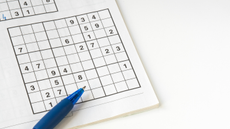My life as a bartender
This is what it's really like to spend your nights as a therapist/wingman/entertainer/best friend for an entire roomful of inebriated New Yorkers


The unspoken agreement states that patrons are ordering that next drink and staying a little longer because they're having so much fun, not because they don't want to go home to an angry spouse, or worse, to an empty apartment. Their sad stories are for your entertainment and shared with incredulity, not out of a desperate need for someone to talk to. With a good bartender, that illusion is never shattered, and the patrons get the healing they really need. The casual conversations about their lives provide an outlet so they can go home free of anger. The advice offered as a natural part of the discourse actually helps them figure out what to do.
Sometimes you want to ignore the really annoying customers, like our regular who drinks a case of Bud a day, can often be heard puking in the bathroom, and occasionally makes racist comments about Obama. But as my good friend and coworker Leah pointed out, "We're probably the only human interaction that guy has all day." With that in mind, I continue to smile as I set down bottle after bottle in front of him. I even throw in an occasional "Yeah, f--k them" when he mutters about his enemies.
(More from Narratively: Is Bob Dylan my dad?)
Subscribe to The Week
Escape your echo chamber. Get the facts behind the news, plus analysis from multiple perspectives.

Sign up for The Week's Free Newsletters
From our morning news briefing to a weekly Good News Newsletter, get the best of The Week delivered directly to your inbox.
From our morning news briefing to a weekly Good News Newsletter, get the best of The Week delivered directly to your inbox.
Bartending is one of those strange occupations in which, if you're any good at your job, people forget you're working at all (See also: actors, sex workers). The danger is that if you're really good at it, you can forget, too. You have to build up a persona to tend bar. If you have to kick someone out, the persona might be meaner than you; if an irritating customer wants to talk your ear off, the persona might be nicer than you. Either way, if you spend enough time playing a role, it gets harder and harder to tell where it ends and you begin.
I dole out relationship advice left and right, never mind that I'm single, bitter, and afraid of commitment. I agree that people's kids, who are often around my age, are ungrateful and just don't know how good they've got it. I feign indignation at rude coworkers, shop clerks, traffic cops. But as with any caretaking job, other people's problems can get exhausting.
"When I was younger I just wanted to help, wanted to be there for people beyond the point of basic empathy," says Ashley, another bartender. "I would allow myself to feel hurt for them, thinking that maybe it would lessen their own pain." One time, a woman came into Ashley's bar fighting back tears. When Ashley asked her what was wrong, she unfurled the long saga of her cheating boyfriend.
"Having experienced that same heartbreak a time or two, I just felt heartbroken for her," Ashley says. "It felt like I was going through it myself, reliving my past for a brief moment."
Sign up for Today's Best Articles in your inbox
A free daily email with the biggest news stories of the day – and the best features from TheWeek.com
(More from Narratively: The aborted launch and meteoric rise of astronaut ice cream)

Empathy is a beautiful thing, but when you hear sad stories all day every day, you have to put a cap on it for your own sake.
When my mother was in school to become a massage therapist, she was taught to stop every so often while working on a client to shake out her hands, exhale, and loosen up her shoulders. The teacher explained that during the massage, she was absorbing their tension into her hands — literal tension because of the physical exertion needed to get deep into the muscles, and the more abstract emotional tension that she was kneading out of them. The teacher stressed the importance of taking the tension from the client without absorbing it into yourself. She also suggested that masseuses get body work themselves when possible.
This is why I sit down on the other side of the bar and take my turn as a patron after every shift. It's a necessary part of the job. Doctors need doctors. Lawyers need lawyers. And bartenders definitely need bartenders. If we went straight home after a day of playing therapist and making endless superficial small talk, we'd forever lose the ability to have a normal human interaction. So we try to relearn, using the same crutch as anyone else who has trouble talking to other people.
I've made a joke to customers more than once when they've watched me mix another drink after finishing my shift. "The most important one of the day!" I've said. "This one's for me!"
(More from Narratively: How I learned to stop worrying and love the Great White Shark)
But when I step out from behind the bar, I don't automatically shed the lessons and habits of bartending. That's impossible. I take all of the secrets and confessions with me, all of those burdens the customers shoved in my direction along with their empty glasses.
I don't know whether cynical people become bartenders or bartending makes people cynical. It's probably a bit of both, but no matter how jaded you are when you start, seeing people at their drunken, depressed, sloppy worst, day in and day out, is bound to make it worse.
"I don't think I expect worse of people," Ashley says when I ask her if tending bar has lowered her opinion of humanity. "I think I just like them less." She laughs, even though she is serious — exactly the kind of deflection that time behind the bar forces you to perfect.
There's a guy who comes into my bar a few times a week with his girlfriend. They seem to be really into each other; they hold hands and when she looks tired he'll ask sweetly if she wants to go home. I'm friendly with them both. I usually give them their first drink for free and keep up with the smaller dramas of their lives.
Read the rest of this story at Narratively.
Narratively is an online magazine devoted to original, in-depth and untold stories. Each week, Narratively explores a different theme and publishes just one story a day. It was one of Time's 50 Best Websites of 2013.
-
 5 hilariously spirited cartoons about the spirit of Christmas
5 hilariously spirited cartoons about the spirit of ChristmasCartoons Artists take on excuses, pardons, and more
By The Week US Published
-
 Inside the house of Assad
Inside the house of AssadThe Explainer Bashar al-Assad and his father, Hafez, ruled Syria for more than half a century but how did one family achieve and maintain power?
By The Week UK Published
-
 Sudoku medium: December 22, 2024
Sudoku medium: December 22, 2024The Week's daily medium sudoku puzzle
By The Week Staff Published